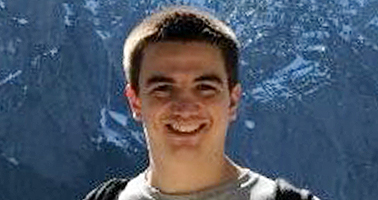Past Event: CSEM Student Forum
Carlos Del-Castillo-Negrete, CSEM Ph.D. student, Computational Hydraulics Group, Oden Institute, UT Austin
3 – 4PM
Monday Mar 21, 2022
POB 6.304 & Zoom
As climate change increases the likelihood of extreme weather events that cause storm surge, the development of computational models capable of accurate forecasts is more vital than ever. Most state-of-the-art models developed include parameterizations of physical processes that are too complex to resolve within the model itself. Model parameters must be inferred by reconciling differences between observed data with model outputs from simulations of previous storm surge events, or hindcasts. The inverse problem of utilizing observed data with model simulations to estimate model parameters and their associated uncertainties is an active area of research with vast applications beyond the storm surge problem.
There are various formulations of inverse problems and methodologies for solving these problems depending on the assumed type of uncertainty in the model parameter being estimated. Uncertainties in model parameters can be categorized as either aleatoric (irreducible) or epistemic (reducible) in nature. For example, in Bayesian Inversion, an epistemic problem is usually formulated in which a true parameter value is assumed to exist, with uncertainties that could be theoretically reduced with more data or better measurement equipment. In contrast, a more recently developed method, data-consistent inversion, solves a class of stochastic inversion problems (SIPs) which assume aleatoric uncertainty in the unknown parameter. The true parameter is now a random variable and the solution to the inverse problem is a probability measure over the space of possible parameter values. This framework and its solution methodologies have proven to be effective for not only aleatoric uncertainty problems but has also been extended to solve problems involving epistemic uncertainty as well.
We present recent developments in data-consistent inversion methods for stochastic inverse problems of relevance to storm-surge modeling. We will focus on the problem of constructing optimal parameter-to-observable quantity of interest (QoI) maps for studying wind-drag parameterizations that include the effects of sea-ice. How to model sea-ice in storm-surge models is an area of active research and of critical importance to areas such as the Alaskan coast which see frequent extreme weather events known as extra tropical cyclones (ETCs) that cause significant damage to coastal communities. The work presented will also include a discussion on software development methodologies for dealing with high-performance computing (HPC) resources. By using application programming interfaces (APIs) such as Tapis to access HPC resources programmatically, we demonstrate how pipelines for uncertainty quantification studies can be vastly simplified and made more reproducible and shareable.
Carlos del-Castillo-Negrete is a 4th-year PhD student in Clint Dawson’s computational hydraulics group. His research interests include inverse problems, uncertainty quantification, high-performance computing, scientific software development, and machine learning.
